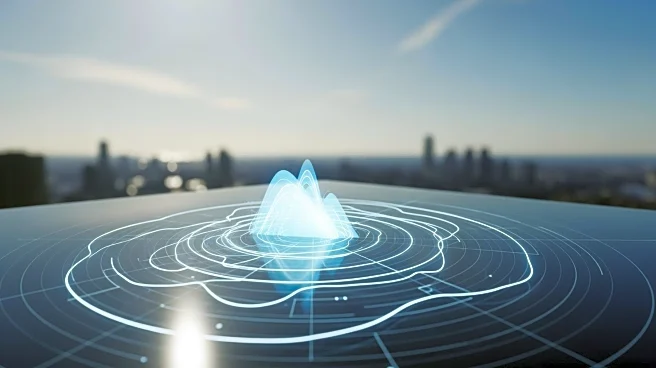Rapid Read • 8 min read
A team of scientists conducting a systematic investigation of deep-sea biodiversity in the Caribbean's Cayman Islands has captured the first-ever footage of the roughskin dogfish, a rare deep-sea shark species. The researchers lowered a camera to a depth of approximately 3,500 feet, baited with sardines, and recorded the shark swimming by 54 times. This marks the first documented appearance of the species in the Cayman and central Caribbean, expanding knowledge of its distribution. The roughskin dogfish is typically seen only as bycatch, making this noninvasive documentation crucial for understanding its biology and diversity.
AD
The discovery is significant for biodiversity conservation efforts, as understanding the distribution and behavior of species like the roughskin dogfish is essential for maintaining healthy ecosystems. Effective documentation methods, such as video systems, are vital for enhancing knowledge of deep-sea species, which can inform conservation strategies. This research contributes to broader efforts to repopulate endangered species and highlights the importance of biodiversity in supporting life on Earth. The findings underscore the need for continued exploration and study of deep-sea environments to protect and preserve marine life.
The research team plans to continue using video systems to study deep-sea biodiversity, potentially leading to further discoveries of elusive species. These efforts may inform conservation policies and strategies aimed at protecting marine ecosystems. The study's findings could also encourage other scientific groups to adopt similar noninvasive methods for documenting marine life, contributing to global biodiversity conservation initiatives. As awareness of the importance of biodiversity grows, there may be increased support for research and conservation efforts in deep-sea environments.
The use of noninvasive video systems in marine research represents a shift towards more ethical and sustainable scientific practices. This approach minimizes harm to marine life and provides high-quality data for researchers. The study also highlights the interconnectedness of ecosystems and the role of biodiversity in maintaining ecological balance. As climate change and human activities continue to impact marine environments, understanding and preserving biodiversity becomes increasingly critical for the health of the planet.
AD
More Stories You Might Enjoy













